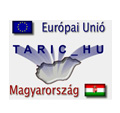

Kategória: Fő-oldal » »
1. Which goods are considered as dual use items?
According to the Art. 2 (1) of 2021/821/EU Regulation dual-use items means items, including software and technology, which can be used for both civil and military purposes, and includes items which can be used for the design, development, production or use of nuclear, chemical or biological weapons or their means of delivery, including all items which can be used for both non-explosive uses and assisting in any way in the manufacture of nuclear weapons or other nuclear explosive devices.
2. Which laws do regulate the foreign trade of dual-use items?
The relevant laws are the following:2021/821/EU Regulation setting up a Union regime for the control of exports, brokering, technical assistance, transit and transfer of dual-use items (recast), and the Government Decree No 13/2011 (II.22.) about the foreign trade of dual-use commodities, and in case of nuclear commodities Government Decree No 144/2011 about international trade of nuclear and nuclear dual-use commodities.
3. Which are those dual-use items that need an export license?
The list of controlled dual-use items are listed in the Annex I of 2021/821/EU Regulation.
4. Is the import of dual-use commodities to be authorised?
The import of dual-use items basically doesn’t need an authorization. International Import Certificate may be needed, if
5. What are the control list (ECCN - Export Control Classification Numbers) numbers and where can they be found?
They are technical codes which pertain to the items listed in Annex I of the EU 2021/821/EU Regulation.
6. What kinds of documents shall be submitted for registration of a company (exporter) by the export licensing Authority?
7. What shall be known about the Internal Compliance Programme (ICP)?
The Internal Compliance Programme contains the exporter's internal procedures and measures in order to comlpy with the export control rules. The internal compliance programme’ or ‘ICP’ means ongoing effective, appropriate and proportionate policies and procedures adopted by exporters to facilitate compliance with the provisions and objectives of this Regulation and with the terms and conditions of the authorisations implemented under this Regulation, including, inter alia, due diligence measures assessing risks related to the export of the items to end-users and end-uses;
-describes the risk assessment concerning the orders and partners,
- regulates the order of filing all the documents pertaining to activities carried out under the rules of Government Decree No 13/2011 (II.22.),
- regulates the scope of tasks and responsibilities of persons involved in the activities conducted under the rules of the of Government Decree,
- regulates the procedures for ensuring the implementation of 2021/821/EU Regulation and the Government Decree within the company,
- furthermore it gives instructions in the Action Plan about the way of elimination of the consequences arising due to possible infringements of the rules.
In case of Global Export Authorisation ICP is required. To assist elaborating the Internal Compliance Programme it is recommended to take into consideration the concerning recommendation of the EU Commission.
8. What kind of documents must be attached to applications for an individual export authorisation?
A document titled „End-Use Certificate for Dual-Use Items” must be attached to the application which is downloadable form our website.
9. What types of export authorisations exist in case of dual-use items’ export?
An Individual Export Authorisation is valid for a period of 1 year, which can be extended once by 1 year if the application was submitted within 30 days before the expiration. Large project authorisations shall be valid for a duration to be determined by the competent authority, but no longer than four years, except in duly justified circumstances based on the duration of the project. If the export activity concerns items that are subject to international sanctions (but may be licensed) an Individual Export Authorisation can only be granted for 6 months. The applicant shall submit to the Authority the End-user Certificate signed by the End-user.
A Global Export Authorisations can be granted for more end-users, for more countries of destination. It is valid for a maximum period of three years and may be extended once, for a maximum of 1 year upon an application for extension submitted 30 days prior to expiry at the latest. Large project authorisations shall be valid for a duration to be determined by the competent authority, but no longer than four years, except in duly justified circumstances based on the duration of the project. Applying for a Global Export Authorisation Internal Compliance Programme is required (mandatory). The exporter shall send the Authority a summary report of export transactions completed according to the Global Export Authorisation twice a year, for the first six months until 31 July of the current year, and for the other second six months until 31 January of the following year.
’Large project authorisation’ means an individual export authorisation or a global export authorisation granted to one specific exporter, in respect of a type or category of dual-use items which may be valid for exports to one or more specified end-users in one or more specified third countries for the purpose of a specified large-scale project
An EU001-EU008 Union General Export Authorisation may be used, if the exports fulfils the criteria stipulated in Annex II. of 2021/821/EU Regulation (Annex II. Section A-H) A Statement (Declaration) in accordance with the Annex 3. of Government Decree No 13/2011 and the respective authorisation number (EU001-EU008) shall be listed on transportation documents or commercial invoices in case of export activities conducted on the basis of Union General Export Authorisation. For using the EU007 UGEA the exporter shall implement an Internal Compliance Program. In case of such export activities the exporter is obliged to send a summary report on the export transactions conducted by him to the Authority twice a year, for the first six months until 31 July of the current year, and for the other second six months until 31 January of the following year.
An authorisation shall be required for the provision of technical assistance related to dual-use items listed in Annex I if the provider of technical assistance has been informed by the competent authority that the items in question are or may be intended, in their entirety or in part, for any of the uses referred to in Article 4(1) (see catch-all). Where a provider of technical assistance proposes to provide technical assistance for dual-use items listed in Annex I and is aware that those items are intended, in their entirety or in part, for any of the uses referred to in Article 4(1), the provider of technical assistance shall notify the competent authority. That competent authority shall decide whether or not to make such technical assistance subject to authorisation.
Pursuant to 2021/821/EU regulation ‘brokering services’ are defined as follows:
brokering services’ means:
|
· the negotiation or arrangement of transactions for the purchase, sale or supply of dual-use items from a third country to any other third country; or |
|
|
· the selling or buying of dual-use items that are located in third countries for their transfer to another third country. |
For the purposes of this Regulation, the sole provision of ancillary services is excluded from this definition. Ancillary services are transportation, financial services, insurance or re-insurance, or general advertising or promotion;
A ’broker’ means any natural or legal person or any partnership that provides brokering services from the customs territory of the Union into the territory of a third country;The authorization procedure for Brokering Services is free of duty.
Authorisation for Transfer and Transit (Art. 11. and Art. 7.)
‘Transfer’ shall mean the delivery of dual-use items listed in Annex IV of 2021/821/EU Regulation within the EU. An authorisation shall be required for intra-Union transfers of dual-use items listed in Annex IV. Transfer licence is valid for a period of 1 year, which can be extended once by 1 year if the application was submitted within 30 days before the expiration. The applicant shall submit to the Authority the End-user Certificate signed by the End-user.
Pursuant to the 2021/821/EU Reg.‘Transit’ shall mean a transport of non-Union dual-use items entering and passing through the customs territory of the Union with a destination outside the customs territory of the Union where those items:
- are placed under an external transit procedure according to Article 226 of the Union Customs Code and only pass through the customs territory of the Union;
- are trans-shipped within, or directly re-exported from, a free zone;
- are in temporary storage and are directly re-exported from a temporary storage facility; or
- were brought into the customs territory of the Union on the same vessel or aircraft that will take them out of that territory without unloading;The rules applicable to (individual) export authorisation shall be also applicable to the authorisation for Transfer, Transit operations under the terms of Government Decree No 13/2011 (II.22.).
The transit of non-Union dual-use items listed in Annex I may be prohibited at any time by the competent authority of the Member State where the items are situated if the items are or may be intended, in their entirety or in part, for any of the uses referred to in Article 4(1) (see cach-all) .Before deciding whether or not to prohibit a transit the competent authority may, in individual cases, impose an authorisation requirement for the specific transit of dual-use items listed in Annex I if the items are or may be intended, in their entirety or in part, for any of the uses referred to in Article 4(1) (see catch-all). If the transit takes place through the territory of multiple Member States, the competent authority of each affected Member State shall be able to prohibit such transit through its territory
“Catch all” (Art. 4.)
“Catch all” measure shall be applied in special cases stipulated in Article 4 of the 2021/821/EU Regulation.
An authorisation shall be required for the export of dual-use items not listed in Annex I if the exporter has been informed by the competent authorities/the exporter is aware, that
- the items in question are or may be intended, in their entirety or in part, for use in connection with the development, production, handling, operation, maintenance, storage, detection, identification or dissemination of chemical, biological or nuclear weapons or other nuclear explosive devices or the development, production, maintenance or storage of missiles capable of delivering such weapons,
- the purchasing country or country of destination is subject to an arms embargo and if the exporter has been informed by the authorities the items in question are or may be intended, in their entirety or in part, for a military end-use;
- the items in question are or may be intended, in their entirety or in part, for use as parts or components of military items listed in the national military list that have been exported from the territory of that Member State without authorization or in violation of an authorization prescribed by the national legislation of that Member State.
That competent authority shall decide whether or not to make the export concerned subject to authorisation. Application for individual licence ( see Individual Licence) shall be submitted with EUC as supporting document.
„Cyber-surveillance catch-all” (Art. 5.)
’Cyber-surveillance items’ means dual-use items specially designed to enable the covert surveillance of natural persons by monitoring, extracting, collecting or analysing data from information and telecommunication systems;
An authorisation shall be required for the export of cyber-surveillance items not listed in Annex I if the exporter has been informed by the competent authority that the items in question are or may be intended, in their entirety or in part, for use in connection with internal repression and/or the commission of serious violations of human rights and international humanitarian law. Where an exporter is aware, according to its due diligence findings, that cyber-surveillance items which the exporter proposes to export, not listed in Annex I, are intended, in their entirety or in part, for any of the uses referred to in paragraph 1 of this Article, the exporter shall notify the competent authority. That competent authority shall decide whether or not to make the export concerned subject to authorisation. Application for individual licence (see Individual Licence) shall be submitted with EUC as supporting document.
I
10. How long is an Individual Export Authorisation valid?
An Individual Export Authorisation is valid for a period of 1 year, which can be extended once by 1 year if the application was submitted within 30 days before the expiration. Large project authorisations shall be valid for a duration to be determined by the competent authority, but no longer than four years, except in duly justified circumstances based on the duration of the project. If the export activity concerns items that are subject to international sanctions (but may be licensed) an Individual Export Authorisation can only be granted for 6 months. The applicant shall submit to the Authority the End-user Certificate signed by the End-user
11. What types of Gerneral Authorisation exist?
According to EU Reg. 2021/821 in accordance with its Sections A-H of Annex II., there are six types of General Export Authorisation from EU001 to EU008. These are the following:
EU001: Union General Export Authorisation.
EU002: Export of certain Dual-Use Items to certain destinations (Goods listed in Wassenaar Arrangement exported to participant countries).
EU003: Export after repair/replacement
EU004: temporary export for exhibition or fair
EU005: telecommunications
EU006: chemicals
EU007: intra-group export of software and technology (ICP required)
EU008: encryption
12. Under which conditions can the EU General Export Authorisations be used?
EU001-EU008 Union General Export Authorisations can be used under the conditions and destinations which are listed in the sections A-H of Annex II. of 2021/821/EU Reg.
Union General Export Authorisation is open only for registered exporters.
13. What should I do if I am trading under the conditions of an EU General Export Authorisation?
An EU001-EU008 Union General Export Authorisation may be used, if the exports fulfils the criteria stipulated in Annex II. of 2021/821/EU Regulation (Annex II. Section A-H) A Statement (Declaration) in accordance with the Annex 3. of Government Decree No 13/2011 and the respective authorisation number (EU001-EU008) shall be listed on transportation documents or commercial invoices in case of export activities conducted on the basis of Union General Export Authorisation. For using the EU007 UGEA the exporter shall implement an Internal Compliance Program. In case of such export activities the exporter is obliged to send a summary report on the export transactions conducted by him to the Authority twice a year, for the first six months until 31 July of the current year, and for the other second six months until 31 January of the following year.
14. How to fill the application-forms in?
15. How much is the duty for processing an application and what is the way of paying it?
































